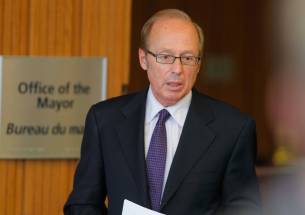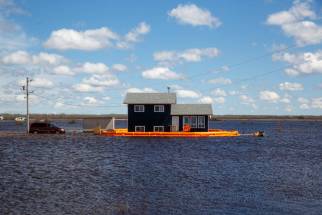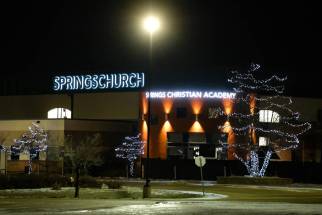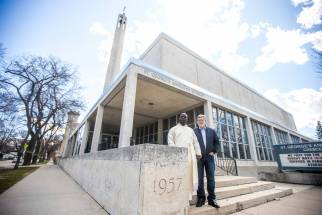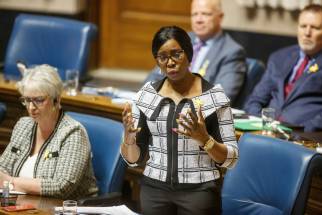RCMP put Katz-era deals under secret microscope Undisclosed criminal probe into real estate deals conducted parallel to HQ fraud investigation
Read this article for free:
or
Already have an account? Log in here »
To continue reading, please subscribe:
Monthly Digital Subscription
$19 $0 for the first 4 weeks*
- Enjoy unlimited reading on winnipegfreepress.com
- Read the E-Edition, our digital replica newspaper
- Access News Break, our award-winning app
- Play interactive puzzles
*No charge for four weeks then billed as $19 plus GST every four weeks. Offer only available to new and qualified returning subscribers. Cancel any time.
Read unlimited articles for free today:
or
Already have an account? Log in here »
Hey there, time traveller!
This article was published 09/05/2022 (961 days ago), so information in it may no longer be current.
The discovery of a secret police investigation into a string of municipal real estate deals and a controversial capital project sheds new light on the scope of suspected criminal activity at Winnipeg city hall during the Katz-Sheegl era.
The Free Press has uncovered evidence of an undisclosed criminal probe, which ran alongside Project Dalton, the RCMP’s multi-year, multimillion-dollar fraud investigation into the construction of the Winnipeg Police Service headquarters.
Project Dioxide, the code name given to the parallel RCMP investigation, launched in the fall of 2014, but was never formally announced or revealed to the public.
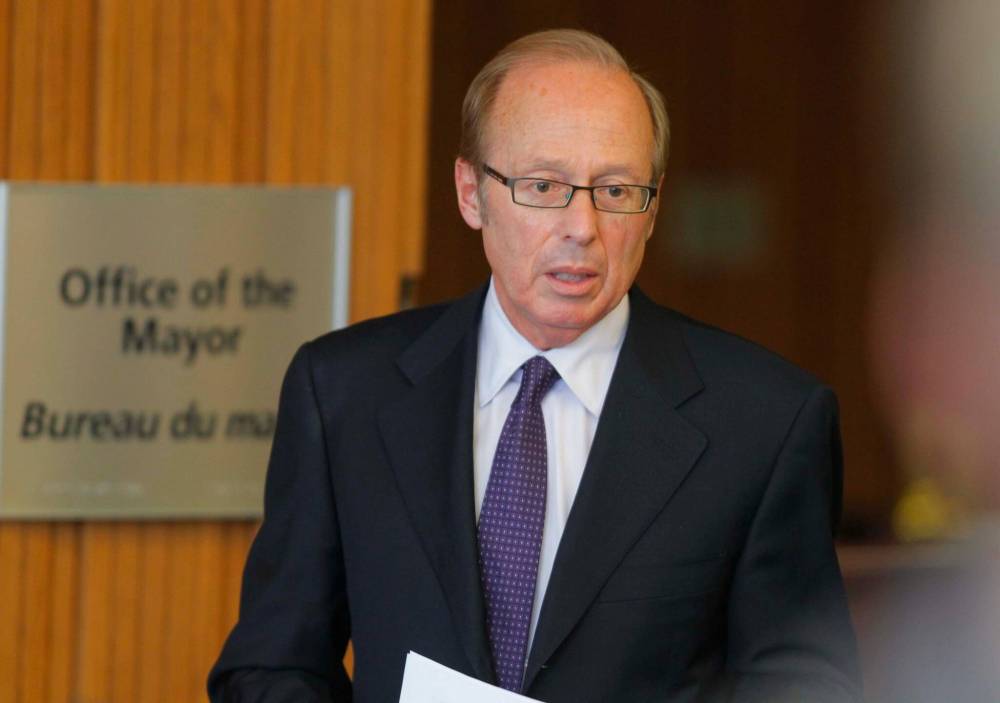
It investigated a series of real estate transactions during the administration of Mayor Sam Katz (2004-2014), as well as the construction of four fire-paramedic stations by Shindico Realty and an associated, aborted land swap.
The discovery comes on the heels of a ruling last month from Manitoba’s top civil court that former City of Winnipeg chief administrative officer Phil Sheegl accepted a bribe in connection with the construction of the police headquarters.
The Free Press learned of the existence of Project Dioxide after obtaining a 2017 sworn statement from Sgt. Breanne Chanel of the RCMP’s commercial crime division. Chanel served as lead investigator on Project Dioxide from November 2014 to June 2015.
“The investigation ran parallel to Project Dalton and was tasked with reviewing audits provided to RCMP in relation to a review of real estate transactions involving the City of Winnipeg, and the construction of Winnipeg Fire Paramedic (Service) stations,” Chanel wrote in July 2017.
While few details are known about the investigation, the sworn statement reveals that in March 2015, the RCMP tapped FINTRAC — Canada’s financial intelligence unit, which works arms-length from law enforcement — as part of the probe.
The FINTRAC records obtained by the RCMP for Project Dioxide included information on electronic banking transfers connected to Katz’s and Sheegl’s financial interests in the United States — specifically, Arizona, from June 2008 to July 2010.
No specific allegations of wrongdoing are made in the sworn statement obtained by the Free Press.
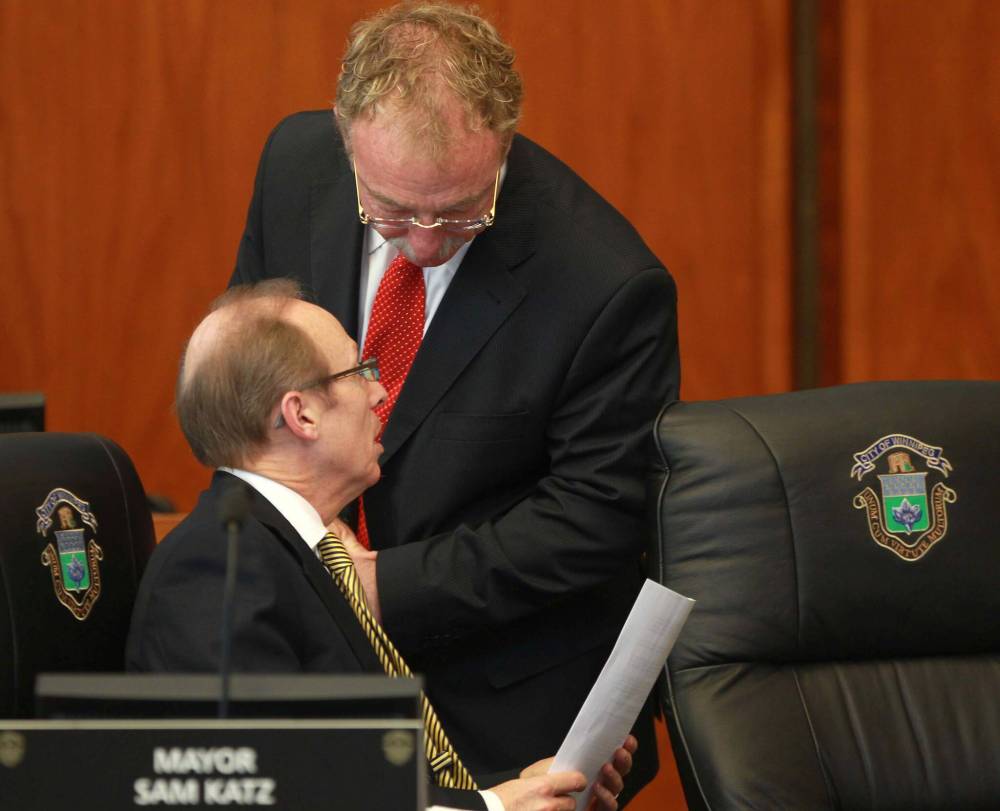
But the document does reveal the RCMP sought “cautioned statements” from Katz and Sheegl, through their lawyer Robert Tapper, between mid-March and early May 2017.
A “caution” must be given by law enforcement when investigators seek to question someone about a suspected criminal offence.
“To date, the correspondence has not resulted in agreeable terms in order to obtain statements from Sheegl and Katz,” Chanel wrote.
In Project Dalton search warrant requests, the RCMP accused Katz and Sheegl of criminal breach of trust.
On Monday, RCMP spokeswoman Tara Seel confirmed the existence of Project Dioxide in a written statement sent to the Free Press.
“Project Dioxide is concluded. No charges resulted. For anything further, I will have to advise you to submit an (Access to Information and Privacy) request,” reads the statement in full.
A request for details on when and why the investigation closed was not answered.

On Tuesday, Felicia Wiltshire, the city’s director of communications, said in a written statement the existence of Project Dioxide was news to the municipal government.
“We are not aware of an RCMP investigation called Project Dioxide. The RCMP has no requirement to make the city aware of any investigations that they are undertaking,” Wiltshire said.
On Tuesday, Tapper — who represents Katz, Sheegl and the owners of Shindico — said he would pass along a Free Press request for comment to his clients. No comment was received by deadline.
The genesis of Project Dioxide was similar to that of the better-known Project Dalton.
Between the fall of 2013 and the summer of 2014, three external audits commissioned by the city into a series of controversial capital projects and real estate transactions during the Katz era were made public.
The first audit was released in October 2013 and looked into the construction of four Winnipeg Fire Paramedic Service stations — on Roblin and Sage Creek boulevards, and Taylor and Portage avenues — as well as an associated, aborted land swap.
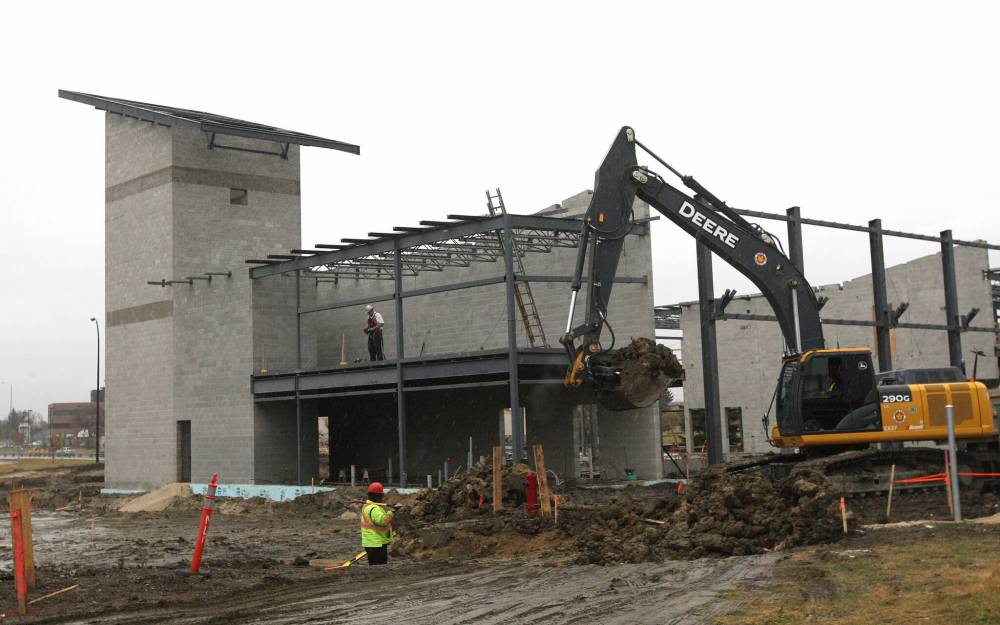
The key players the report identified in the controversy included Sheegl, former WFPS Chief Reid Douglas, the city’s legal services department (then headed up by current CAO Michael Jack) and Shindico Realty.
Shindico is a local commercial real estate and development firm, led by brothers Sandy and Robert Shindleman, both of whom are longtime friends and former business partners of Katz.
The audit found Shindico was leaked inside info by city staff and awarded the construction contract for the new fire-paramedic stations through “non-competitive methods.” The project then came in millions of dollars over budget.
City council was so concerned by the audit’s findings it hired an outside legal firm — the Procurement Law Office Professional Corporation — to provide an opinion on whether there was “potential illegal activity by the civic administration.”
But city council would never see the full report from PLOPC. According to media coverage at the time, it was presented to the administration, and councillors were given only a summary of its findings at a closed-door meeting.
The city refused to release the full opinion, citing solicitor-client privilege, with councillors saying only that the review found no evidence of criminality, but determined there was a need to reform procurement policies, which opened up the municipal government to liability on an ongoing basis.
In June 2014, roughly six months after the first audit was released, the results of another external audit — this one into years of municipal real estate transactions — were made public.
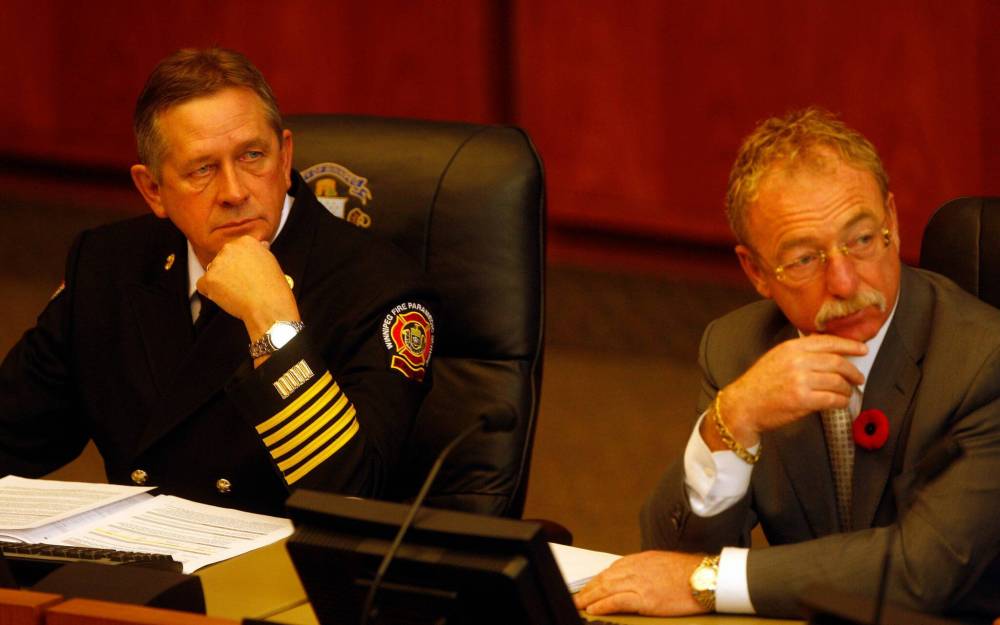
The report reviewed 33 deals — including acquisitions, expropriations, land swaps, leases and sales — involving city hall from 2007 to 2011. Numerous deals also involved Shindico, with the audit unable to determine if the city achieved “value for money” in many cases.
“Evidence supporting compliance with city policies, procedures, and industry practices was lacking in many instances, particularly in the significant transactions reviewed,” the audit reads.
The audits into real estate deals and the construction of the WFPS stations, as well as the external legal opinion, would go on to serve as the basis of RCMP Project Dioxide.
In July 2014, one month after the real estate management review was released, an external audit into the (then-ongoing) police headquarters construction project was made public.
Much of the audit focused on the conduct of Sheegl and Caspian Construction — the firm awarded a single-sourced contract to build the new police station. Again, Shindico was involved in the project.
Questions were raised as to why Shindico was hired as a broker for the purchase of the former Canada Post building (which was renovated into the downtown police HQ) after the city had entered into single-sourced negotiations for the property.
Auditors found no documentation explaining why Shindico’s services were needed and noted the firm was paid a higher broker fee than necessary. Following the city’s purchase of the building, Shindico was also tapped to provide real estate management services at the site.
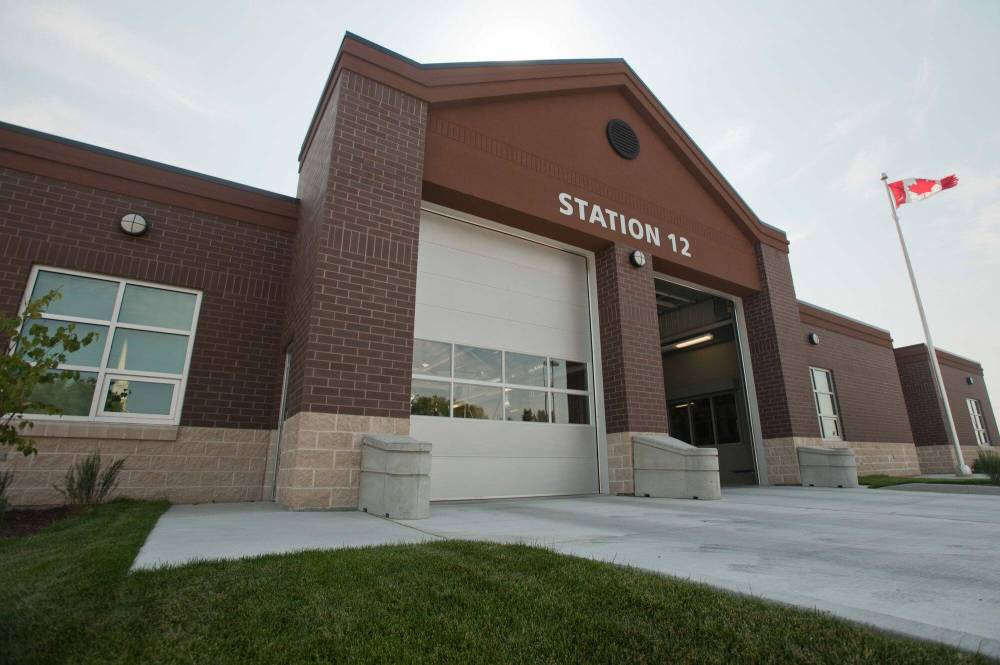
The audit into the headquarters construction project would go on to serve as the basis of RCMP Project Dalton.
On July 18, 2014, in the waning months of the Katz administration, the city sent all three audits, as well as the confidential legal opinion, to Manitoba Justice for review.
On Aug. 15, 2014, Manitoba Justice announced it had forwarded the materials to the RCMP “for review and to conduct any investigations it considers appropriate.”
On Nov. 4, 2014, Brian Bowman was sworn in as mayor, replacing Katz.
That month, RCMP Project Dalton and Project Dioxide were active.
In December 2014, the existence of Project Dalton was revealed to the public when the RCMP executed a search warrant at the offices of Caspian Construction.
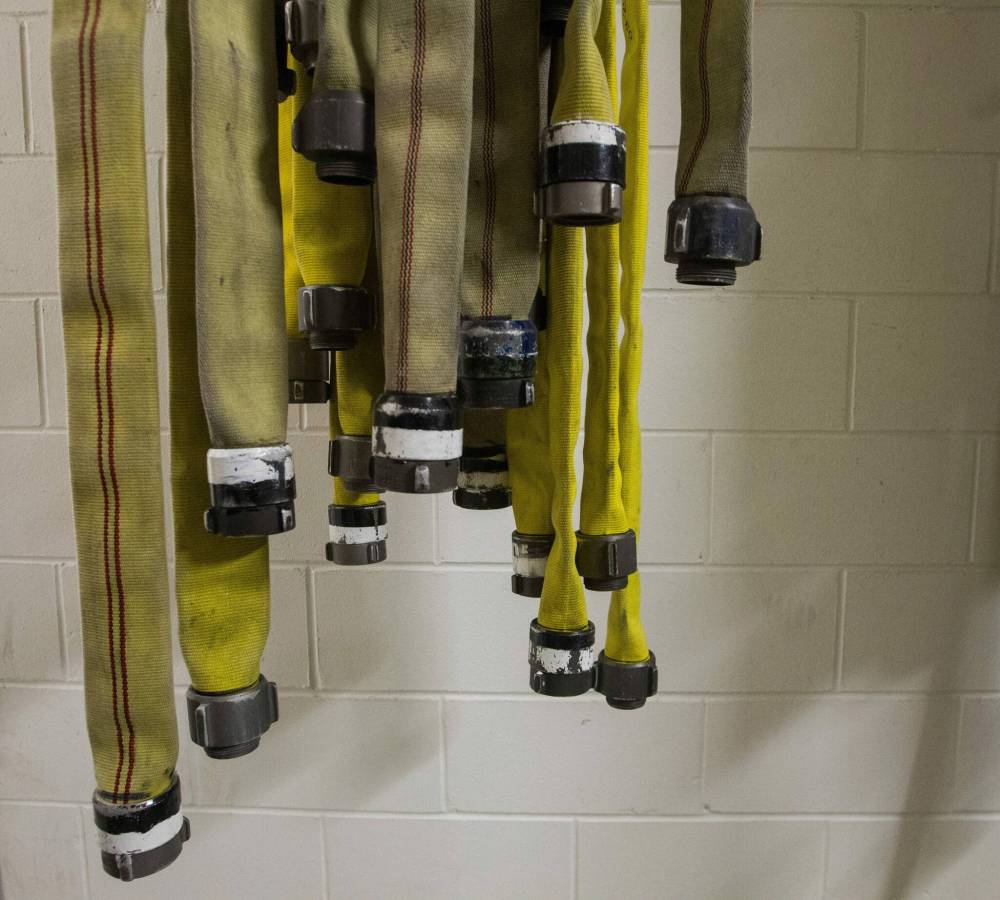
Meanwhile, RCMP Project Dioxide operated in the shadows.
Five years later, in December 2019, Manitoba Justice announced the formal closure of Project Dalton, with no authorization of criminal charges.
It remains unclear when RCMP Project Dioxide was formally closed.
The City of Winnipeg remains locked in a decade-long legal battle with Shindico that resulted from the fallout of the WFPS stations controversy. It centres on a cancelled land swap of three city titles for a former Shindico parcel on Taylor Avenue.
A final decision is expected to be handed down this year by the Land Value Appraisal Commission, a provincial body responsible for settling expropriation disputes.
In March and April 2022, Manitoba’s top civil court ordered Sheegl to repay the city hundreds of thousands of dollars, after ruling he breached fiduciary responsibilities as CAO and accepted a bribe on the police headquarters construction project.
Tapper told the Free Press Sheegl intends to appeal the ruling.
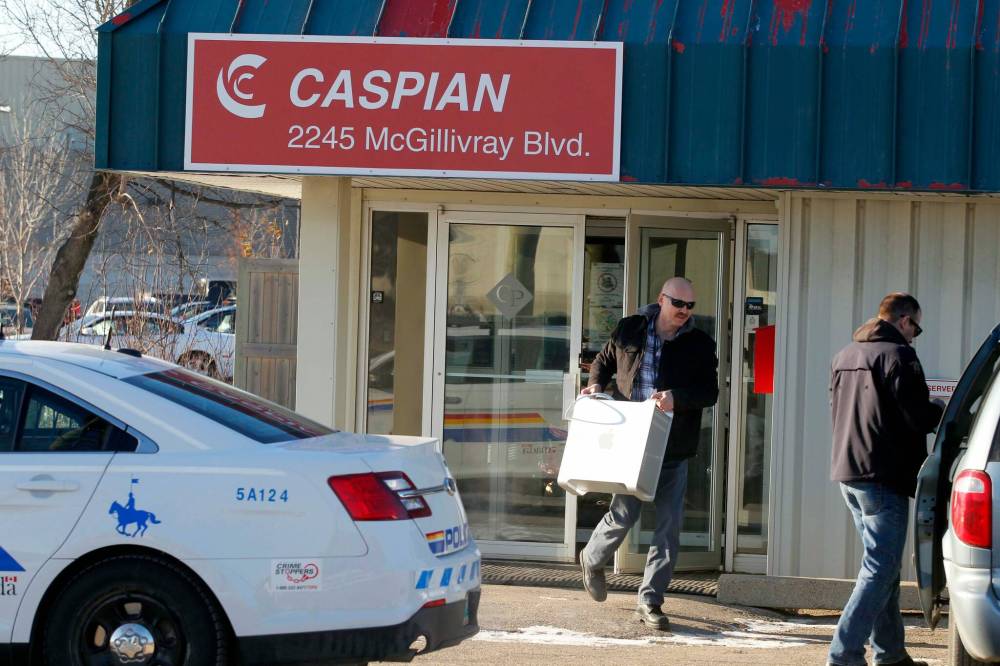
The city’s civil litigation against other defendants in the police HQ lawsuit — primarily people associated with Caspian Construction — remains before the courts.
Twitter: @rk_thorpe

Ryan Thorpe
Reporter
Ryan Thorpe likes the pace of daily news, the feeling of a broadsheet in his hands and the stress of never-ending deadlines hanging over his head.
Our newsroom depends on a growing audience of readers to power our journalism. If you are not a paid reader, please consider becoming a subscriber.
Our newsroom depends on its audience of readers to power our journalism. Thank you for your support.










